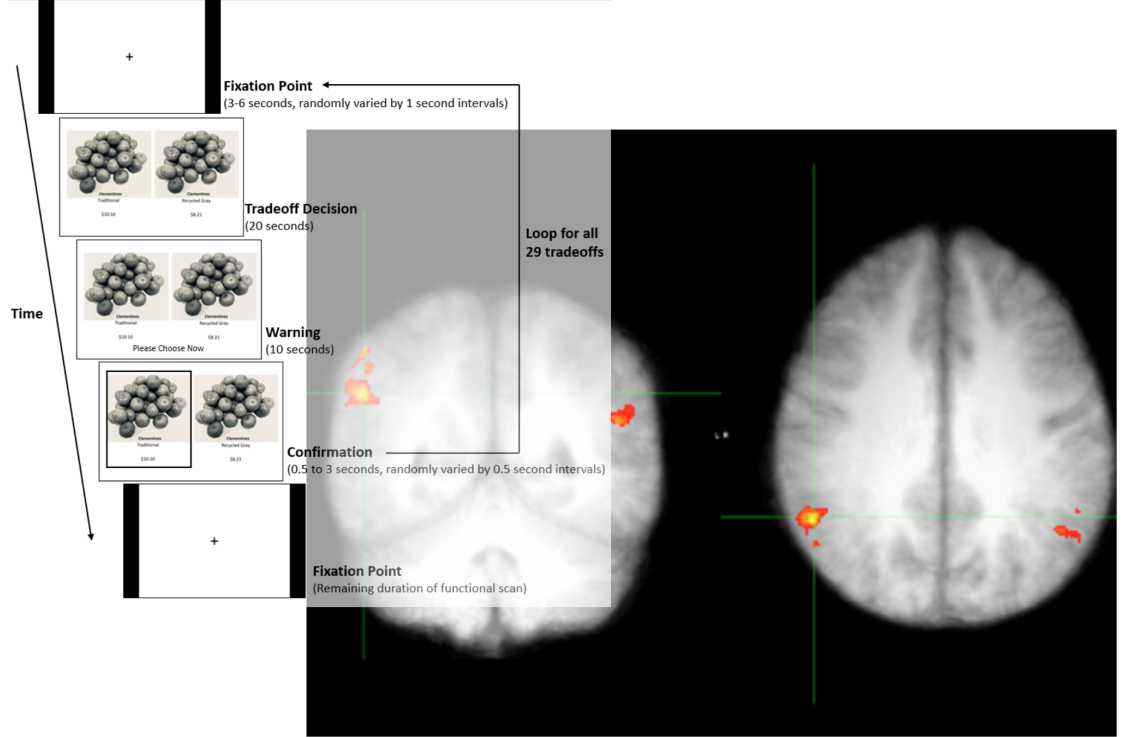Neural basis of Behaviour Change in Sustainable Decision-making
fMRI, Econometric, Neuroeconomics
Dealing with large-scale societal problems, such as water scarcity, often requires changes in behavior that consumers resist. Some sustainable, cost-effective, and safe solutions are even rejected because of a psychological response of disgust, such as food produced with recycled water to supplement traditional water supplies and crickets as a replacement for water-intensive proteins like beef. Adding the “right” positive elements to a stigmatized item has been shown to mitigate disgust. However, this can be difficult and expensive to do as it requires the stigmatized object to go through a process that restores its “natural” and “pure” state. This study combines fMRI and a choice experiment to test if a behavioral intervention that emphasizes the existing, positive dimensions of a stigmatized object can lessen the weight of disgust in the decision process, mitigating its effects. Results suggest that it can. A video that promotes recycled water was shown to ameliorate consumers’ aversion to food produced with it. However, consumers’ greater acceptance of recycled irrigation water came not from overcoming whatever psychological reactions of disgust they experienced but from reweighting its importance in their decisions. This novel finding will lower the burden on farmers using recycled irrigation water, and potentially producers of other stigmatized foods.
